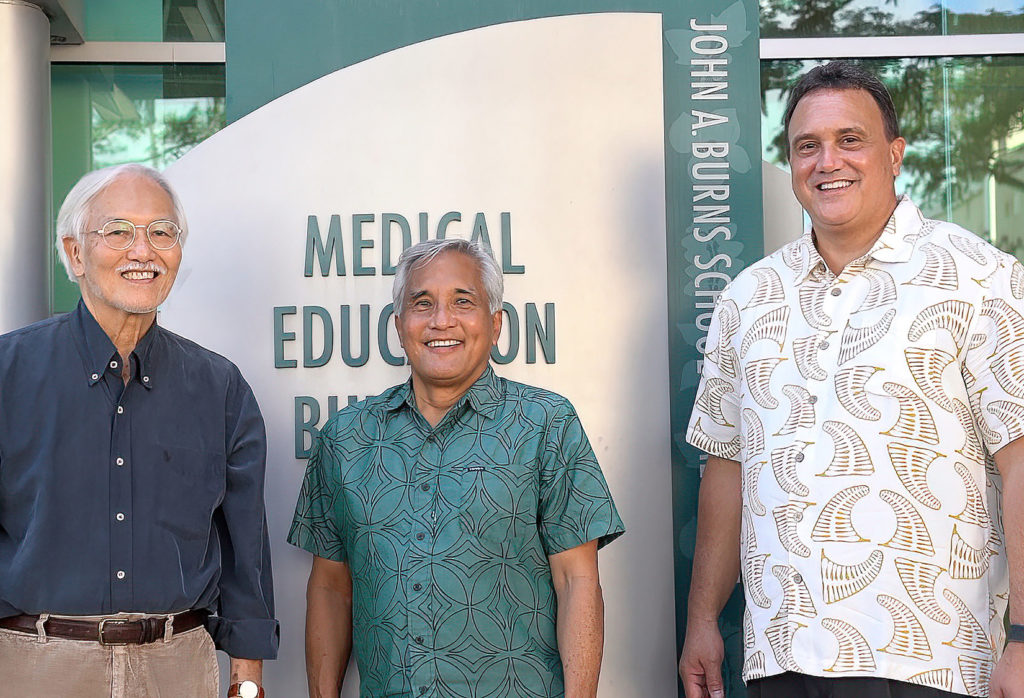Improving Health Equity
HAWAI‘I’S DESIGNATION AS ONE OF THE “HEALTHIEST” STATES IN THE NATION belies shocking health disparities among Native Hawaiians, Pacific Islanders, Filipinos and other medically underserved populations.
While Native Hawaiians, Pacific Islanders, and Filipinos collectively account for 40 percent of the state’s population, they remain medically vulnerable, with disproportionately higher rates of physical ailments and mental health conditions, shorter life spans, and poorer access to healthcare, than Caucasian and Asian people in Hawai‘i.
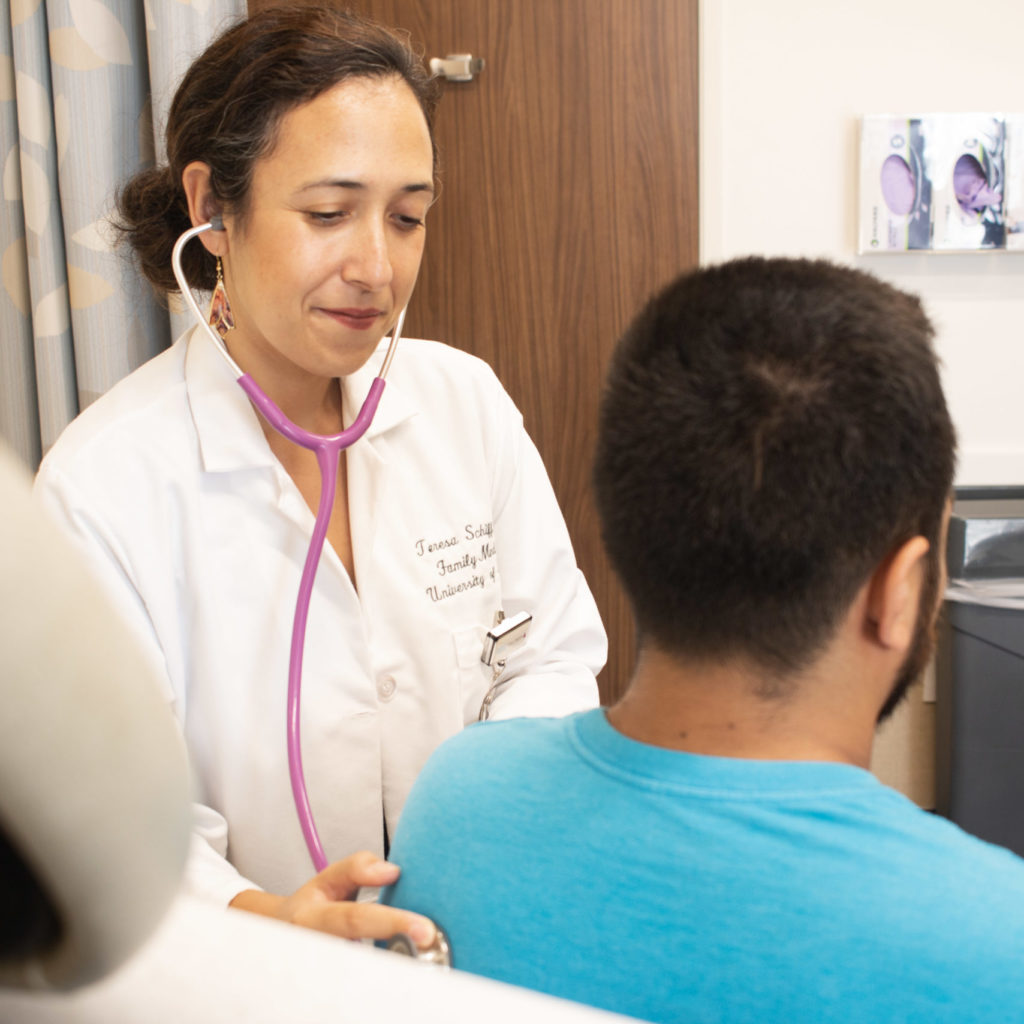
“Left unaddressed, the health gaps between these three groups — Native Hawaiians, Pacific Islanders, and Filipinos — and other groups in Hawai‘i will likely widen, placing a greater burden on these communities and a state budget that is already struggling with major socioeconomic challenges, especially with the recent economic downturn from the COVID-19 pandemic,” said Joseph Keawe‘aimoku Kaholokula, PhD, professor and chair of the Department of Native Hawaiian Health at the John A. Burns School of Medicine (JABSOM).
“With the highest population of Indigenous Pacific People in the U.S., Hawai‘i is the perfect place to conduct research to develop solutions that will impact and benefit both the local and global indigenous communities,” added Neal A. Palafox, MD, MPH, professor at JABSOM’s Department of Family Medicine and Community Health.
A Community-Based Approach
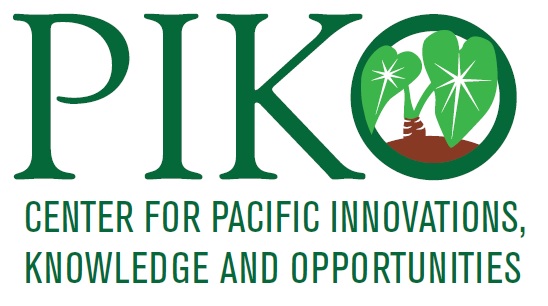
In response, JABSOM launched a new Center for Pacific Innovations, Knowledge, and Opportunities (PIKO) to work toward improving the health and wellbeing of Native Hawaiians, Pacific Islanders, Filipinos and other medically underserved populations in Hawai‘i.
Taking a team-science approach, PIKO is developing new and leveraging existing resources across its partnering institutions, which include the UH System, Hawai‘i Pacific University (HPU), Chaminade University of Honolulu (CUH) and a statewide network of 18 practice-based organizations (PBO) and other community-based organizations (CBO).
This is an unprecedented initiative in Hawai‘i that is bringing together academia, non-profit, government and healthcare partners and stakeholders across Hawai‘i to support efforts consistent with state and federal policies, and call for culturally responsive healthcare solutions and a stronger, more diversified workforce.
– Joseph Keawe’aimoku Kaholokua, one of PIKO’s principal investigators
While UH has succeeded in competing for and conducting research for basic scientific discoveries and early-phase clinical trials, there have been few opportunities to build and sustain capacity for research on the later end of the clinical and translational research (CTR) continuum, such as community-based efficacy, effectiveness trials and research that addresses the social determinants of health — research with immediate, real-world impact.
Through a five-year, $15-million Institutional Development Award (IDeA) grant from the National Institute of General Medical Sciences (NIGMS), PIKO is building a robust infrastructure and strategies to support more advanced CTR initiatives and the dissemination and implementation of innovations leading to improved health, as well as healthcare solutions, across partnering institutions and communities who need them the most.
However, in order to effectively identify the root causes of poor health and disparities among Native Hawaiians, Pacific Islanders, Filipinos and other underserved groups, and to develop culturally responsive and impactful interventions, PIKO is also addressing the lack of representation from these communities as both CTR participants and CTR investigators.
UH Investment in CTR and Growing the CTR Workforce
To further support growing and diversifying the CTR workforce, UH Mānoa has also committed $1.3 million over five years to help PIKO accomplish its CTR and workforce goals to increase the number of new and early-stage CTR investigators from Native Hawaiian, Pacific Islander and Filipino communities.
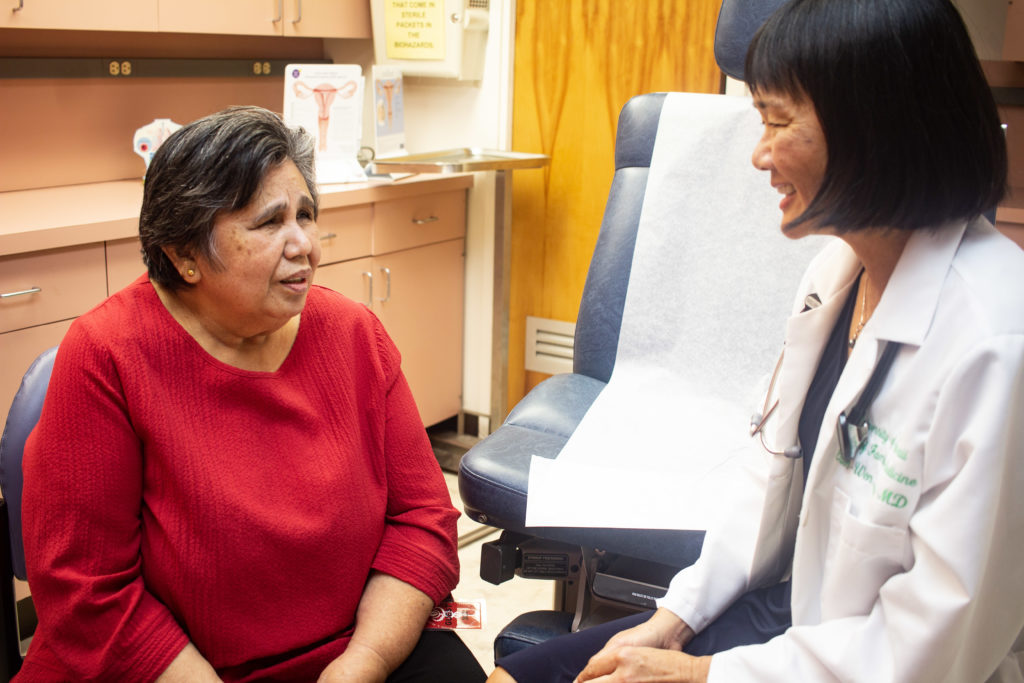
“Achieving health equity in Hawai‘i’s marginalized populations requires dedicated and sustained investments in relevant discovery and problem-solving tasks that belong to the people of these communities, and will help us transform our current health-promotion and disease-prevention paradigms,” said Palafox, also a PIKO principal investigator.
PIKO Core initiatives include: Professional Development; Pilot Projects Program; Biostatistics, Epidemiology, and Research Design; Community Engagement and Outreach; Clinical Research and Regulatory Support; Tracking and Evaluation, which ensures PIKO is meeting its milestones and objectives; and Administrative, which oversees and facilitates CTR infrastructure building.
Within the first ten months, PIKO has provided an intensive, six-month grant writing training workshop to ten junior and mid-level faculty from across the UH System through its Professional Development Core, with support from the Biostatistics, Epidemiology, and Research Design Core.
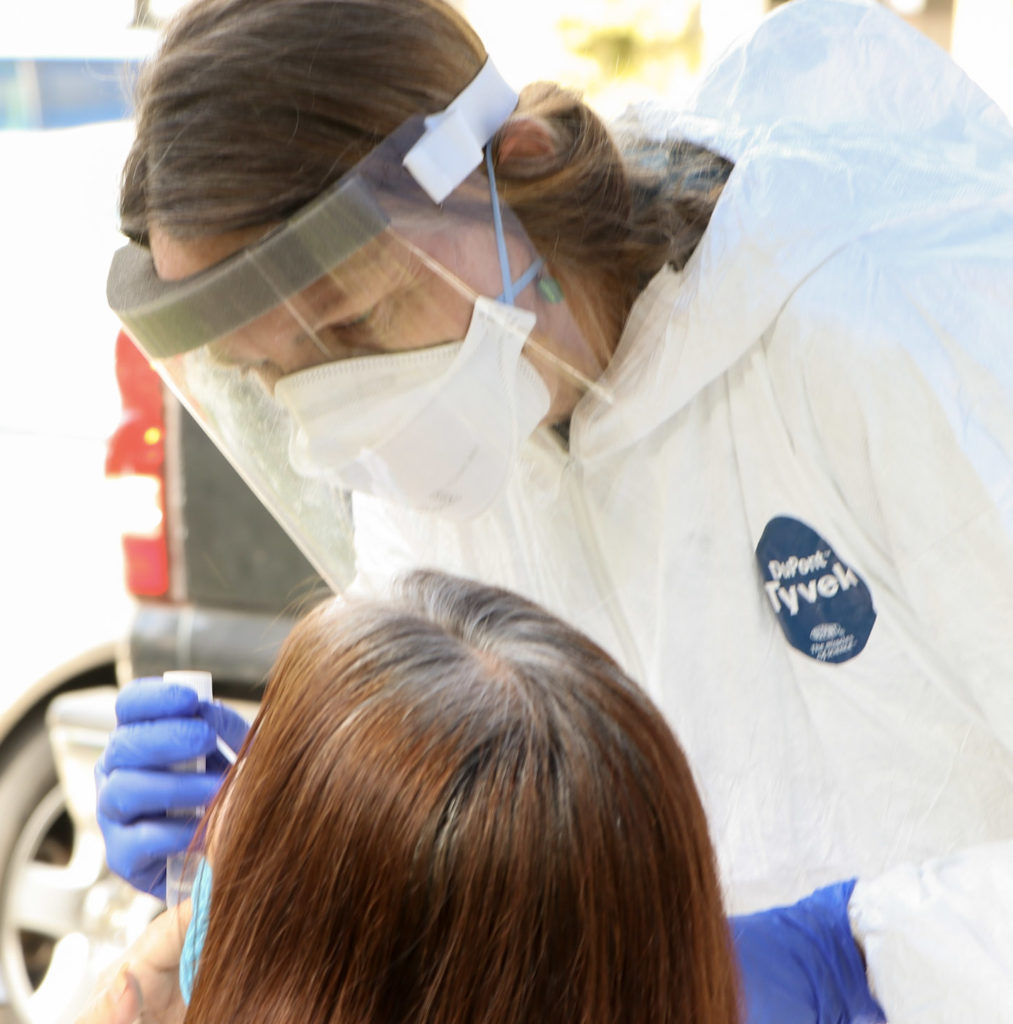
Through the Clinical Research and Regulatory Support Core, PIKO also joined two National Institutes of Health (NIH)-supported national research projects — Researching COVID to Enhance Recovery (RECOVER) and National COVID Cohort Collaborative (N3C) — to better understand the medical impact of COVID-19 on our communities. In April 2022, PIKO organized its first annual Capacity Building Workshop through its Community Engagement and Outreach Core. The event gathered PIKO-supported researchers, mentors, and community partners, as well as leading experts in indigenous and community health, data science, and community-engaged research, to share best practices and lessons learned.
In addition, PIKO launched its Pilot Projects Program, awarding $50,000 each to seven new and early-stage investigators from UH Mānoa, UH West O‘ahu, UH Hilo and HPU to conduct culturally responsive and scientifically meritorious CTR projects. The 12-month projects include identifying the impact of socio-economic and geographic factors; understanding resilience and ‘Āina-connectedness; reducing adverse pregnancy outcomes; and developing specific treatments for mosquito-borne flaviviruses.
“We are excited to support emerging researchers in their efforts to conduct and accelerate the pace of research that is responsive to the health needs of our communities,” said Richard Yanagihara, MD, MPH, who serves as PIKO’s program director. “The purpose of this program is to help us address real-world challenges and to design community-responsive solutions that will reduce health disparities and advance health equity throughout the state.”
For more information about PIKO, visit piko.jabsom.hawaii.edu/.

